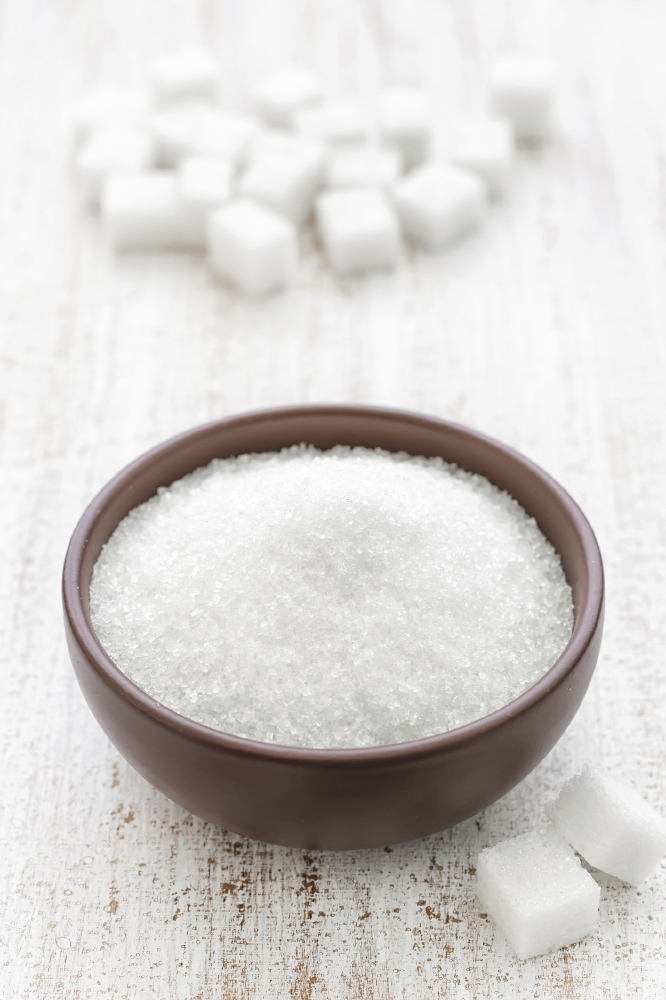
Are you eating more than enough sugar?
There’s been a lot of debate about sugar recently, what role does it have in our diet? How much do we need in our diet?
Like the majority of other carbohydrates, sugar is a source of energy, and we all need energy to go about our daily lives.
Sugar has recently been singled out by some people as a key cause driving obesity, but it is misleading to consumers to single out specific foods in this way. The rise of obesity in the UK is a result of a complex range of factors – there is no silver bullet to solving the problem and we need to take a holistic approach to find a solution.
When we consume sugar, or in fact any food or drink, it becomes part of our daily calorie intake. Everyone has a responsibility to manage this in line with their recommended daily calorie intake; it is all about finding the right balance between fuel (calories) in and fuel (calories) out.
Put simply, we can put on weight when we consume more calories than we burn off.
What foods should we limit in our diets that have more sugar than we necessarily think?
Rather than limit specific foods or drinks, the important thing here is that we do our best to achieve a healthy and balanced diet. The way to do this is to avoid consuming more calories than we burn off. That sounds simple, but it is pretty hard if we don’t know what our daily recommended calorie intake is or what we are putting into our body. Our research suggests that consumers aren’t doing this, with two thirds of us not tracking our daily calorie intake, and a quarter of us admitting it’s because we don’t know how to.
Food and drink labelling is important here in helping consumers understand what they’re putting in their bodies. We understand that labelling can be confusing as on-pack information is not always consistent, and we all have a role to play to ensure consumers understand labelling to help them manage a healthy and balanced diet.
Are there any foods we should be avoiding all together?
We recommend consulting your GP over whether you should be consuming specific foods or drinks.
But for people looking to lose weight, it is really important that they know what their daily recommended calorie intake is, and are clear about the calorie content of the foods and drinks they are consuming. It is all about finding the right balance between fuel (calories) in and fuel (calories) out.
Are there any sugar substitutes that we could maybe use in foods/recipes?
We are in favour of reformulation which reduces calories and see it as a positive contribution to tackling the obesity epidemic.
However, reformulation by reducing and/or replacing sugar does not necessarily result in lower calories. Research has shown that sugar is often replaced by other carbohydrates, which can lead to some reformulated products having an equivalent calorific value to the original. When consumers see a reduced sugars claim, they expect a significant reduction in calories, which is not always the case.
For example, if sugar is reduced or replaced in many products containing fat, because of the structure previously provided by sugar, fat becomes a larger proportion of the total weight, which may result in increased calorie content per 100g.
Processed foods contain high numbers of sugars, so what sort of things should we be looking for on food labels?
Our research has shown that two thirds of Brits don’t track their daily calorie intake, with a quarter of those admitting it’s because they don’t know how to.
To put it simply, we believe the most important thing for consumers to look out for is the calorie content of food and drink on labels. Coupled with knowing what their daily recommended calorie intake is, this will help us to eat the right amount of calories as part of a healthy and balanced diet.
For more information on how to maintain a healthy, balanced diet visit the NHS Choices Good Food Pages.
Eating too much sugar can lead to health problems like diabetes, so what tips do you have for trying to cut it out or just cut down?
Sugar has not been established as a cause of diabetes.
The overwhelming body of scientific evidence is that it is the over-consumption of calories and our increasingly sedentary lifestyles which are causing the imbalance between energy (calories) in and energy (calories) out - the key factor driving rising obesity and related health problems.
People with or at risk from diabetes should consult with their doctors, nutritionists or other health professionals for the best advice on the diet that best fits their individual needs and lifestyles.
For more information:
Department of Health Responsibility Deal:
https://responsibilitydeal.dh.gov.uk/pledges/
Food and Drink Federation:
http://www.fdf.org.uk/qanda-sugars.aspx.
Sugar Nutrition UK
http://www.sugarnutrition.org.uk/what-is-sugar.aspx

